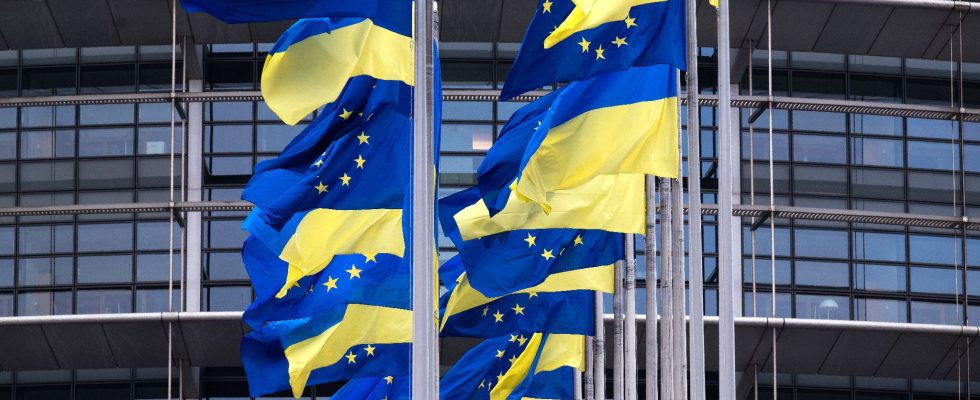This Tuesday, September 19, twelve independent political scientists presented the conclusions of their report, entitled “Sailing the high seas: reforming and enlarging the European Union”, to European Affairs Ministers. They worked under the leadership of German political scientist Daniela Schwarzer and French researcher Olivier Costa, the two rapporteurs, and conducted interviews with all stakeholders as well as members of civil society. This work commissioned by Germany and France should help to liven up the debate around new integrations at a time when Ukraine and Moldova are seeking to open negotiations around their accessions while those of the Balkan countries have been slipping for years. many years.
Concretely, these conclusions will feed into the next discussions which will open during the next European summit, on October 5 in Spain, and those, decisive this time, of the summit of December 15 and 16 on the potential opening of accession negotiations with Ukraine and Moldova. In August, Charles Michel, the President of the European Council affirmed the need for the EU to “strengthen its links and become more powerful” and therefore to “meet the challenge of enlargement”, specifying that Europe should be ready by 2030.
The details of the report, published by Context, reveal that the twelve experts judge that the EU is not yet ripe for the entry of a dozen new members. Major strategic decisions are already complex to take at 27, they believe, due to the rule of unanimity which prevails in the Council in a few areas considered “sensitive” such as taxation, the accession of new states or foreign Affairs.
“Reforms necessary even without enlargement”
This essential unanimity confers a de facto right of veto to each country which some use to negotiate on other subjects. Hungary, in particular, is heavily criticized for repeatedly using this leverage to obstruct key agreements, such as the distribution of asylum seekers among all member states last June, thereby provoking discontent among other states. “The extension of veto rights to ten new member states over time could paralyze the EU,” underline the French and German experts.
They therefore propose a move to qualified majority, for example the majority would be reached in 60% of States – representing 60% of the population – in all areas where unanimity is still the rule. The authors also advocate a new calculation of voting rights to give more weight to small and medium-sized countries. “We consider that these reforms are necessary beyond the question of enlargement, insists to L’Express Gaëlle Marti, professor of public law and one of the six French contributors to the report. These are measures that we proposed so that the European Union can be effective.”
“The rule of law is a condition for access to the benefits of the European Union”
“The fundamental values [de l’UE] and the protection of democracy and the rule of law risk further erosion if states with weak institutions are allowed to join quickly,” warns the report. The eight countries now candidate, including Bosnia- Herzegovina, Serbia and North Macedonia are required to carry out reforms to comply with European values.
To have better dissuasive means against the most recalcitrant States, the authors recommend simplifying the procedure enabling States which do not respect “its fundamental values” to be deprived of the right to vote in the Council. For the moment, this so-called “article 7” procedure has never been completed. “The rule of law must be a non-negotiable condition for access to the benefits of the European Union. Without this guarantee, policies cannot function, it is not showing off,” warns Gaëlle Marti. “As soon as a border is crossed, we must be certain of what is happening in each country. For example, for European arrest warrants to be operational, it is necessary for justice to be independent.”
Like the wish for a “multi-speed” Europe expressed by Emmanuel Macron on May 9, 2022 during the Conference on the Future of Europe, researchers recommend implementing the principle of “differentiation” . It consists of leaving a hard core of members aspiring to deep European integration alongside a wider circle of countries bringing together countries adhering to the single market (but without political adhesion) and a third circle, even more extensive, corresponding to the European Political Community, an informal body of intergovernmental cooperation launched at the initiative of Emmanuel Macron in the context of Russia’s invasion of Ukraine. For French contributor Gaëlle Marti, the report’s proposals do not “upset European functioning in its current conception” but seek to “respond to the geostrategic challenges awaiting the European Union”. A long-term project.
